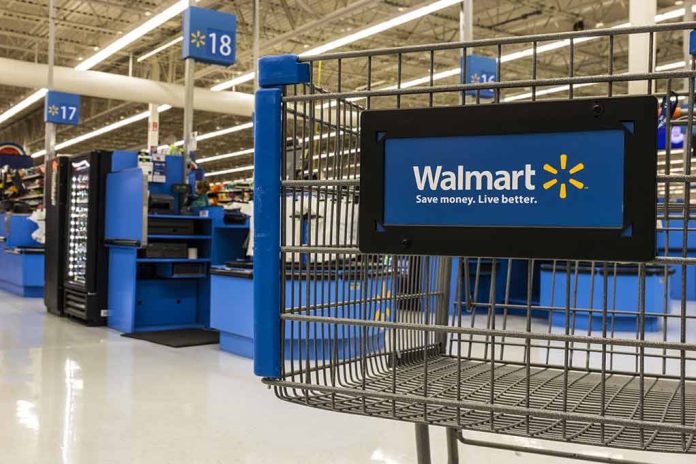
Walmart’s decision to recalibrate its diversity, equity, and inclusion programs signals a pivotal moment in the corporate world’s response to conservative criticism of so-called “corporate wokeness.”
At a Glance
- Walmart reduces diversity, equity, and inclusion (DEI) programs.
- Changes include reducing staff DEI training and revising participation in gay-friendliness indices.
- Walmart will stop using terms “DEI” and “Latinx” in official communications.
- Robby Starbuck warns Amazon and Target about maintaining similar policies.
Walmart Reassesses DEI Programs
Walmart is facing scrutiny as it scales back its diversity, equity, and inclusion (DEI) programs. This move comes amid backlash from conservative voices branding these initiatives as “corporate wokeness.” The retail giant aims to align its corporate priorities with public sentiments and stakeholder concerns. Walmart’s recalibration appears aimed at striking a balance between inclusivity and strategic business interests, a challenge many corporations face in today’s socio-political climate. Companies are observing Walmart closely to see how this realignment affects the business landscape.
The driving force behind Walmart’s decision is conservative activist Robby Starbuck, who previously targeted companies like Tractor Supply, Ford, and Harley Davidson. Discussions with Walmart executives led to significant changes in their DEI policies. Walmart will scale back DEI staff training, withdraw from the Human Rights Campaign’s gay-friendliness index, and review its participation in Pride and other events. Walmart’s decision to drop terms such as “DEI” and “Latinx” portrays a shift towards more conservative, shareholder-focused strategies.
WALMART $WMT DROPS DIVERSITY, EQUITY, AND INCLUSION (DEI) PROGRAMS – Bloomberg
— Evan (@StockMKTNewz) November 26, 2024
Starbuck’s Influence
Robby Starbuck’s influence over Walmart’s recent decisions reflects his success in reshaping corporate approaches to DEI. His campaign against organizations adopting “woke” policies shows a ripple effect that’s likely to influence how corporations navigate cultural issues. Starbuck praised Walmart executives, declaring the decision a major success in reducing corporate wokeness. He believes this shift sends a powerful message across the industry, encouraging other corporations to reevaluate their commitments to DEI initiatives.
“I have to give their executives major credit because this will send shockwaves throughout corporate America. This is the biggest win yet for our movement to end wokeness in corporate America,” said Mr. Starbuck.
Starbuck has cautioned other corporations, including Amazon and Target, about retaining similar policies. His assertion that Walmart’s actions could lead to a shift in competitive dynamics demonstrates a potential trend where companies rethink DEI initiatives to align with the changing landscape. Many are watching to see if indeed, as he suggests, competitors like Target might face challenges in light of Walmart’s stance.
What This Means for Corporate America
Walmart’s reevaluation of its DEI programs reveals broader pressures on businesses responding to criticisms of corporate wokeness. This recalibration comes amid a trend where corporations are retreating from DEI programs due to conservative pressure. By halting funding requirements that mandate demographic data and revisiting supplier diversity policies, Walmart positions itself as adaptable to evolving market dynamics. The retailer’s actions could set a precedent for others to follow suit, recalibrating their approaches to social corporate governance.
“We’ve now changed policy at companies worth over $2 Trillion. Companies like Amazon and Target should be very nervous that their top competitor dropped woke policies first,” asserted Starbuck.
As Walmart seeks to eliminate perceived preferential treatment in supplier diversity programs, the company embraces a change that echoes the sentiments of its critics. This strategic review with the intention of ditching DEI programs highlights the power of activism in shaping corporate policies. As such, Walmart’s significant shift could prompt other organizations to reconsider their DEI strategies and adopt practices that align more closely with shareholder expectations.






















